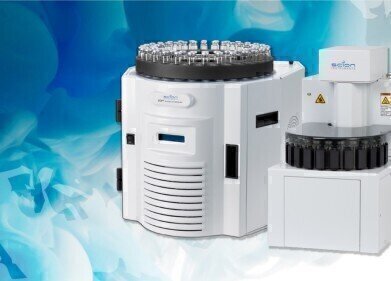Industrial News
How to Make Homemade Tie-Dye T-Shirts - Chromatography for Kids
Dec 06 2014
Chromatography is the process of separating out the various components of a compound or solution so that they can be readily identified. It is most commonly associated with scientific laboratories and technical experiments – although the same principles apply in many of our everyday lives.
Indeed, at base level, it involves little more than the process of the solution of a sample into a liquid or gaseous state. This is something that can be practiced in any classroom, or even at home.
Tie-Dye T-Shirts
An interesting experiment which yields colourful results for kids is creating their own tie-dye t-shirts. All that is needed for the experiment is:
- Colourful markers
- A suitable T-shirt to be tie-dyed
- Several plastic cups
- Several rubber bands
- Medicine dropper
- Water
- 70% Rubbing alcohol (also known as isopropyl alcohol)
To conduct the experiment, simply place the plastic cups underneath the t-shirt and secure them by stretching the rubber bands over their lips. This will create several circles of white material stretched taut, where you can draw the designs. Once the designs have been created using the colourful marker pens, it’s just a matter of dropping a few beads of the water onto one of the designs and a few drops of the alcohol onto another. The experiment is discussed in more detail in this article by Scientific American.
The results will not only yield bright patterns on the shirts, it can also teach us something about the properties of the ink, thanks to chromatography. Because the ink will react differently to the alcohol than it will to the water, we will see more vivid patterns when the former is used. This is very similar to the technique used in chromatography; in fact, simple paper chromatography can be used in the classroom to determine if black marker pens really contain more colours than just black.
Other Simple Uses of Chromatography for Kids
Science buddies has a great experiment where it uses the simple technique of paper chromatography to separate out the various components in black marker pen and demonstrate that there is really more to the pen than just black.
This works by combining the ink from the pen with a soluble solution and then measuring its retention factor. The retention factor is the difference between how far the solvent has travelled compared to how far the sample being tested has travelled. Since each substance has a distinct and unique retention factor, chromatography can not only be used to demonstrate that a compound is made up of more than one component, but actually identify these components as well. Such experiments are a fantastic way to explain a difficult concept to a young and inquisitive brain.
If you enjoyed this topic and would like to try out another project take a look at: How to See a Rainbow in a Leaf – Chromatography for Kids.
Image Source: Tie-Dye Example
Digital Edition
Chromatography Today - Buyers' Guide 2022
October 2023
In This Edition Modern & Practical Applications - Accelerating ADC Development with Mass Spectrometry - Implementing High-Resolution Ion Mobility into Peptide Mapping Workflows Chromatogr...
View all digital editions
Events
ACS National Meeting - Fall 2024
Aug 18 2024 Denver, CO, USA
Sep 04 2024 Chiba, Tokyo, Japan
Sep 04 2024 University of Warwick, Coventry, UK
Sep 10 2024 Rockville, MD, USA
Plastics Recycling World Expo Europe
Sep 11 2024 Brussels, Belgium














